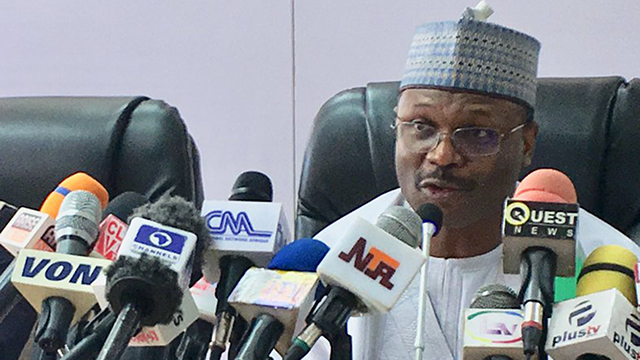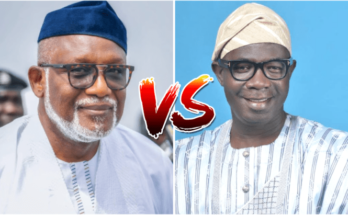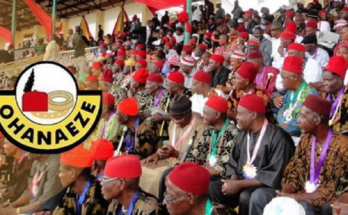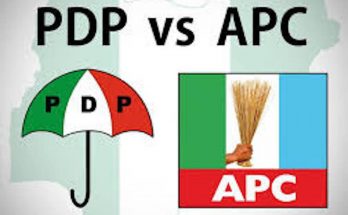The Independent National Electoral Commission (INEC) has read riticising act to the political parties preparing to nominate candidates for the Edo governorship election that it will not accept any candidate nominated outside the June 27 dealdline window for the conclusion of the party primaries.
Commission’s Chairman, Prof Mahmood Yakubu, who handed the warning during a virtual meeting with leaders of political parties on Monday, also cautioned political parties opting for direct primaries to avail the Commission with the comprehensive register of party members to be used as electorate for the election from the Ward to Local Government and State levels.
The Commission further revealed that it has resumed the official countdown for the 14 activities for the Edo poll with the publication of notice at its State offices today Monday.
“Drawing from the guidelines, the Commission has released a policy on how electoral activities can proceed while mitigating risks to all involved in the process. The policy will be a major issue of discussion at this meeting. I am glad to note that a number of political parties have also issued guidelines to their members for the safe conduct of party primaries for the forthcoming Edo and Ondo Governorship elections drawing from the advisory by health authorities.
“You will recall that on February 6, 2020, the Commission released the timetable and schedule of activities for the Edo and Ondo Governorship elections. Today, it is exactly 110 days to the Edo governorship election scheduled for September 19, 2020 and 131 days to the Ondo Governorship election holding on October 10, 2020. The Timetables for the two elections contain 14 activities drawn from the Constitution, the Electoral Act as well as the Commission’s Regulations and Guidelines.
“The first activity is the official publication of Notice as enshrined in Section 30 of the Electoral Act. The date for this activity for the Edo governorship election is today Monday June 1, 2020. I am glad to say that this activity has been carried out. The Notice for the Election (Form EC60A) has been pasted in our Edo State office.
“In addition, and for the first time, the Commission has also published the same notice on our website and social media platforms. With this development, the process leading to the Edo governorship election on September 19, 2020 has commenced in earnest.
“Party primaries for the nomination of candidates for the Edo governorship election begin on Tuesday. Already, some political parties have invited the Commission to monitor their primaries which must be conducted from June 2-27, 2020. This time around, the submission of nomination forms will be done online for which a dedicated portal has been set up.
“Let me therefore warn political parties that intend to field candidates for the election to strictly adhere to these dates as well as the new online procedure for filing of nominations. Any party that operates outside these dates will only have itself to blame. The portal will automatically shut down on the scheduled date and at the fixed hour. The Legal Department and ICT will brief this meeting on the new procedure.
“Based on experience, it is also important to draw your attention to the necessity for rancour-free primaries. Party primaries form the foundation for the secondary election conducted by the Commission. You must therefore avoid acts of thuggery, brigandage, vote-buying and other sundry violations of the Electoral Act.
“As we monitor the conduct of party primaries, we will pay particular attention to your compliance with the law and to consider sanctions so that the unruly behaviour of some party supporters is not carried forward to the main election.
“At the same time, I wish to appeal to political parties that opt for direct primaries to avail us with the register of members to be used for the election from Ward to Local Government and State levels for the effective discharge of our monitoring responsibilities under the law.
“Those that opt for indirect primaries should similarly make available to the Commission the list of delegates for the election. Doing otherwise will amount to going into an election without the voters’ register. The Commission makes available to each political party the complete register of voters before every major election. We expect political parties to reciprocate for their primaries,” the Commission warned.
“In addition to the governorship elections in Edo and Ondo States, the Commission is also making preparations to conduct nine bye-elections. The details have already been made public. However, as we were preparing for this meeting, our office in Zamfara State informed us that a Member of the State House of Assembly for Bakura Constituency passed on yesterday.
“As we await the declaration of vacancy from the Speaker of the State Assembly, the number of bye-elections has increased. The Commission mourns the loss of all our National and State legislators and extend our condolences to their families and constituents,” he said.
Emphasising the commitment of the commission to reduce the frequency of conduct of bye-elections, he said: “At the same time, there is need for a national conversation around the frequency of bye-elections in Nigeria. In the month of May 2020 alone, five members of State Houses of Assembly passed on. Since December 2019, a period of six months, twelve members of the National and State Houses of Assembly have similarly passed on.
“This is in addition to the resignation of two Senators from Bayelsa who have since been sworn-in as Governor and Deputy Governor of the State. The cost of conducting these bye-elections to the Commission, the security agencies, political parties and candidates, election observers, the media, litigations (both pre-election and post-election) and disruption of activities as a result of the restriction of movement on Election Day is enormous.
“There is no election season in Nigeria any longer. The Commission is busy conducting elections all-year round between one General Election and another. This often diverts our attention away from reform, innovation, peer learning and planning for the consolidation of our electoral process.
The Commission is going to open a discussion with stakeholders and the National Assembly for necessary reforms towards more cost-effective and democratic options,” the Commission’s boss noted.




